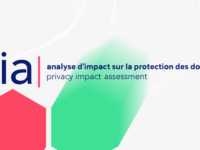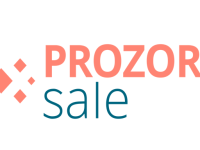The Free Education platform is an open and collaborative learning space that seeks to awake the interest of Brazilian youth in their personal and professional development. It is a free, open platform, and its practical, interactive content is especially directed at lower income youths (between the ages of 16-24), that have not completed high school and do not have the necessary skills to find employment or interest in continuing their studies through formal education.
Innovation Tag: Open Source
Social innovations offer many new solutions to today’s challenges. Yet, they encounter difficulties in becoming known. Social innovation Crossroad offers a precise vision of social innovations in France. To do so, a search engine gives access to 5000 projects already capitalized by 50 actors. Financers, coaches, academics and projects holders now get reliable information, automatically up-to-date and enter a new community. Small as well as big projects are highlighted the same way.
The Blockbuster model predicts the deterioration and future condition of the School Estate under various maintenance and rebuilding spending policies (i.e. the effect of planned maintenance/repair on this deterioration). This provides a data-driven approach to improving the management of the School Estate leading to the potential of saving public money.
MTender system is a modern networking multi-platform eProcurement system that comprises a Central Database Unit and a number of networking commercial eProcurement platforms connected to the Central Database Unit. MTender was designed to ensure interoperability with existing and future e-Government services, national registers and to provide end-to-end online workflows for all public procurement methods.
The ‘Reproducible Analytical Pipelines’ project is a collaboration between several UK Government departments to revolutionize the way statistical publications are produced. By using open source software, statistics can be produced more quickly, with automated quality control, in a way that is easier to reproduce, and share. This open approach leads to more transparent, higher quality statistics.
Agenda2030.mx promotes the design of evidence-based policies in a transparent and collaborative manner. Academia, public officials and decision-makers can follow the progress of the indicators measuring the global goals with official data and user friendly visualizations.
The General Data Protection Regulation (GDPR) requires that organisations carry outData Protection Impact Assessments (DPIA or PIA) prior to starting a likely risky processing operation. The PIA tool is a free and open source software tool, available as a standalone and “server” version. It helps organisations to conduct PIAs by guiding them through the process step-by-step, and thus to demonstrate compliance with the GDPR.
Tens of millions of Americans are eligible to clear their criminal record, but due to a complicated, costly, and time-consuming process, only a small fraction have been able to do so. Clear My Record makes automatic record clearance possible by using an open source algorithm to review records, determine eligibility, and produce clearance motions. It shifts the burden of record clearance off of individuals by enabling the government to clear all records at scale and reinvest in communities.
ProZorro.Sale is an electronic auction system aimed at transparent sales of state and local government assets. It involves a central database that conducts auctions and stores all the information about the transaction and commercial platforms connected to the database via Application Programming Interface (API). After the transaction all the information becomes public.
Decidim est une plateforme numérique imaginée par la mairie de Barcelone dès 2016 pour créer et coordonner des espaces et des processus participatifs, qui vise à étendre et faciliter l’accès à la participation citoyenne en vue de la co-construction et de la co-production des politiques publiques. Il s’agit d’un projet européen open source : son code est ouvert et libre ; en d’autres termes, tout le monde peut le voir, l’utiliser, le copier ou l’enrichir.




